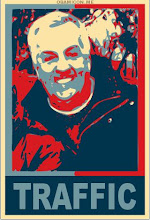 San Diego Debriefing...
San Diego Debriefing...After two weeks of catching up at work, I can finally file my report on my trip to the San Diego Technical Conference and Exhibit.
Between March 23 and March 28, 2007, I traveled to San Diego, CA, to attend the Institute of Transportation Engineers’ Technical Conference and Exhibit at the Sheraton San Diego Hotel and Marina. I arrived on Friday, March 23, in order to attend the ITE International Board of Direction Meeting held in conjunction with the conference. The Board Meeting lasted Friday and Saturday.
The Board Meeting involved a lot of discussion on ITE public relations, as well as membership recruitment, retention, and reinstatement. Additional funds were authorized for staff to promote these efforts. There was addiitonal discussion of ITE staffing changes and succession planning. The ITE website was addressed regarding the level of information that should be provided. The Transportation Professional Certification Board was discussed regarding the potential for additional certification activities. The Board approived two new Honorary Members of ITE -- Brian Bochner of Texas, and Andy O'Brien from Australia. Both will be formally recognized at the Annual Meeting in Pittsburgh.
The theme of the Technical Conference was Congestion. The conference began with a keynote address from Tyler Duvall, Assistant Secretary for Transportation Policy from the USDOT in Washington, DC. Mr. Duvall spoke about the need for a strategic focus on congestion rather than mobility. He also stated that there needs to be a major federal role to stimulate transportation initiatives at the metropolitan level. He ended with the view that we are on the cusp of seeing an alignment of special interest groups working toward congestion management. He also highlighted the website, http://www.fightgridlocknow.gov/.
Another speaker, Tim Lomax, from the Texas Transportation Institute, stated that congestion reliability is important in measuring congestion. Drivers will accept a certain level of congestion delay as long as they can plan for it. Drivers have less tolerance for unexpected delay. Both early and late arrivals have costs. Forty percent of all congestion is created by bottlenecks, while other congestion is created by weather, special events, etc.
Other speakers included Ted Trepanier of the Washington DOT, who discussed several performance measures his state uses to measure congestion – duration, extent, severity, reliability, travel time, delay, volume, etc. Other topics covered included signal timing strategies, multimodal congestion mitigation, land use strategies, etc.
The theme of the Technical Conference was Congestion. The conference began with a keynote address from Tyler Duvall, Assistant Secretary for Transportation Policy from the USDOT in Washington, DC. Mr. Duvall spoke about the need for a strategic focus on congestion rather than mobility. He also stated that there needs to be a major federal role to stimulate transportation initiatives at the metropolitan level. He ended with the view that we are on the cusp of seeing an alignment of special interest groups working toward congestion management. He also highlighted the website, http://www.fightgridlocknow.gov/.
Another speaker, Tim Lomax, from the Texas Transportation Institute, stated that congestion reliability is important in measuring congestion. Drivers will accept a certain level of congestion delay as long as they can plan for it. Drivers have less tolerance for unexpected delay. Both early and late arrivals have costs. Forty percent of all congestion is created by bottlenecks, while other congestion is created by weather, special events, etc.
Other speakers included Ted Trepanier of the Washington DOT, who discussed several performance measures his state uses to measure congestion – duration, extent, severity, reliability, travel time, delay, volume, etc. Other topics covered included signal timing strategies, multimodal congestion mitigation, land use strategies, etc.



No comments:
Post a Comment